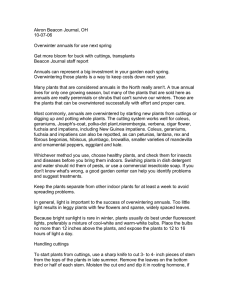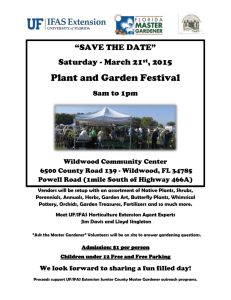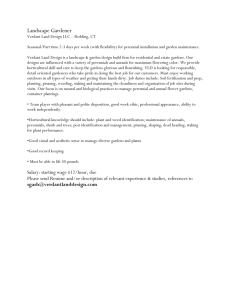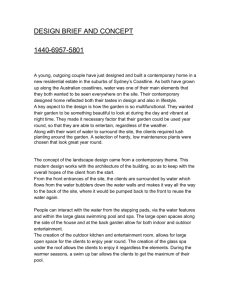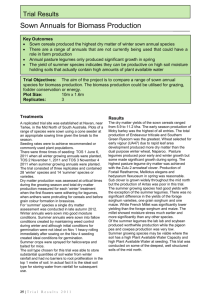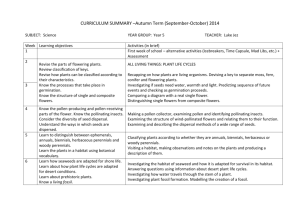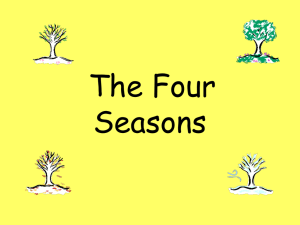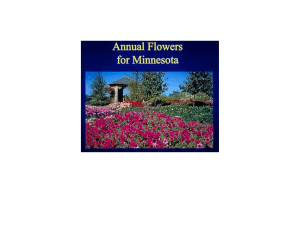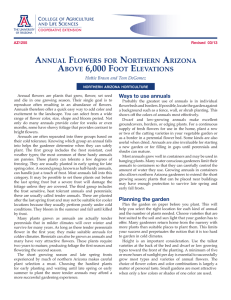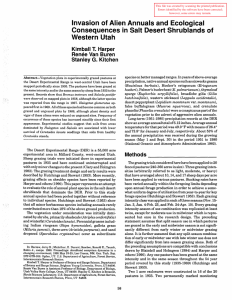Winter Annuals for Seasonal Color - Charlotte County Cooperative
advertisement
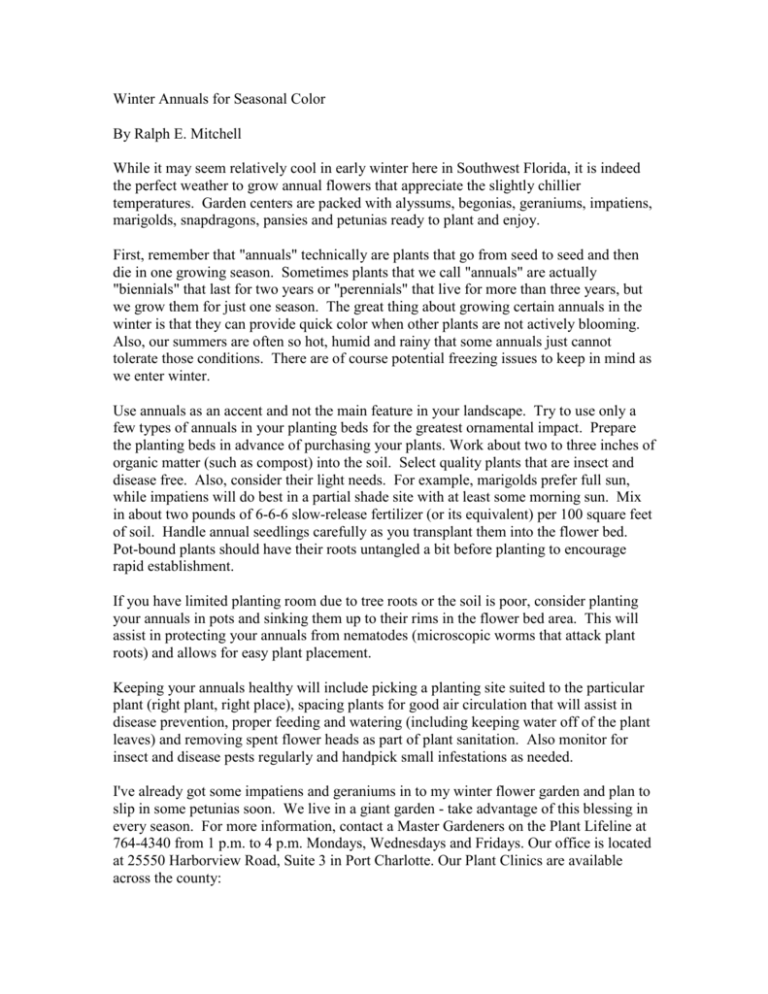
Winter Annuals for Seasonal Color By Ralph E. Mitchell While it may seem relatively cool in early winter here in Southwest Florida, it is indeed the perfect weather to grow annual flowers that appreciate the slightly chillier temperatures. Garden centers are packed with alyssums, begonias, geraniums, impatiens, marigolds, snapdragons, pansies and petunias ready to plant and enjoy. First, remember that "annuals" technically are plants that go from seed to seed and then die in one growing season. Sometimes plants that we call "annuals" are actually "biennials" that last for two years or "perennials" that live for more than three years, but we grow them for just one season. The great thing about growing certain annuals in the winter is that they can provide quick color when other plants are not actively blooming. Also, our summers are often so hot, humid and rainy that some annuals just cannot tolerate those conditions. There are of course potential freezing issues to keep in mind as we enter winter. Use annuals as an accent and not the main feature in your landscape. Try to use only a few types of annuals in your planting beds for the greatest ornamental impact. Prepare the planting beds in advance of purchasing your plants. Work about two to three inches of organic matter (such as compost) into the soil. Select quality plants that are insect and disease free. Also, consider their light needs. For example, marigolds prefer full sun, while impatiens will do best in a partial shade site with at least some morning sun. Mix in about two pounds of 6-6-6 slow-release fertilizer (or its equivalent) per 100 square feet of soil. Handle annual seedlings carefully as you transplant them into the flower bed. Pot-bound plants should have their roots untangled a bit before planting to encourage rapid establishment. If you have limited planting room due to tree roots or the soil is poor, consider planting your annuals in pots and sinking them up to their rims in the flower bed area. This will assist in protecting your annuals from nematodes (microscopic worms that attack plant roots) and allows for easy plant placement. Keeping your annuals healthy will include picking a planting site suited to the particular plant (right plant, right place), spacing plants for good air circulation that will assist in disease prevention, proper feeding and watering (including keeping water off of the plant leaves) and removing spent flower heads as part of plant sanitation. Also monitor for insect and disease pests regularly and handpick small infestations as needed. I've already got some impatiens and geraniums in to my winter flower garden and plan to slip in some petunias soon. We live in a giant garden - take advantage of this blessing in every season. For more information, contact a Master Gardeners on the Plant Lifeline at 764-4340 from 1 p.m. to 4 p.m. Mondays, Wednesdays and Fridays. Our office is located at 25550 Harborview Road, Suite 3 in Port Charlotte. Our Plant Clinics are available across the county: Demonstration Garden every Thursday from 9 to 11 a.m. Englewood/Charlotte Public Library 9 a.m. to noon every Monday. Mid County Regional Library first Thursday of the month from 1 to 3 p.m. Monthly Plant Clinics are Saturdays from 9 a.m. to noon at the following locations: Cape Haze Publix first Saturday of the month; Peachland Promenades Publix ‹ second Saturday of the month; Home Depot Murdock and Home Depot Punta Gorda the third Saturday of the month Ralph Mitchell is the county extension director/horticulture agent for the Charlotte County Cooperative Extension Service. You may contact him by e-mail Ralph.Mitchell@charlottefl.com You may also contact a volunteer Master Gardener from 1 p.m. to 4 p.m. Monday, Wednesday and Friday at 764-4340 or by e-mail Master.Gardener@charlottefl.com Resource: Black, R. J. & Tija, B. (2000) Annual Flowers for Florida. The University of Florida Extension Service, IFAS.
